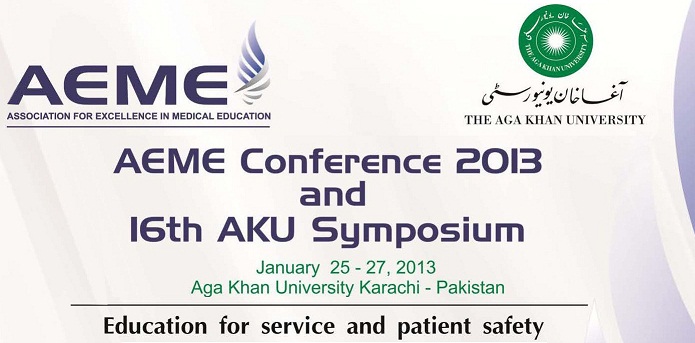Day 1 : Poster Presentations (Theme: Teaching and Learning)
Stress prevalence among second year MBBS students
Location
Auditorium Pond Side
Start Date
26-1-2013 3:30 PM
Abstract
Background: Medical students (M.S) are exposed to stress during their education. The resultant anxiety adversely affects their academic performance.
Objectives: This study was conducted to assess the prevalence of stress among second year MBBS students.
Methods: A cross sectional study using a semi-structured self-administered questionnaire was carried out among the second year M.S. A total of 30 male and 30 female students filled in the questionnaire.
Results: Inability to cope, helplessness, increased psychological pressure, mental tension and too much workload are ‘stress factors’ for M.S .Ratio of stress among females is more than the males. Low moods, inability to concentrate, loss of temper are most common symptoms. Females report more symptoms. Heavy workload and exams are the predominant stressors. Sports, music, hanging out with friends, sleeping or going into isolation were various coping mechanisms. If Stress affects the academic performance, than the M.S prefer to talk to a peer. They demand more recreational activities on campus, revised schedule of academics and exams, better counseling facilities and improvement in student-teacher relationship.
Conclusions: This Study revealed that academic problems were greater sources of stress in second year medical students compared to non-academic problems. Implementing effective changes in the curriculum to make it more student-friendly should receive priority in addressing this high prevalence of stress among medical students.
Key words: Medical students, stress prevalence, stress factors
Stress prevalence among second year MBBS students
Auditorium Pond Side
Background: Medical students (M.S) are exposed to stress during their education. The resultant anxiety adversely affects their academic performance.
Objectives: This study was conducted to assess the prevalence of stress among second year MBBS students.
Methods: A cross sectional study using a semi-structured self-administered questionnaire was carried out among the second year M.S. A total of 30 male and 30 female students filled in the questionnaire.
Results: Inability to cope, helplessness, increased psychological pressure, mental tension and too much workload are ‘stress factors’ for M.S .Ratio of stress among females is more than the males. Low moods, inability to concentrate, loss of temper are most common symptoms. Females report more symptoms. Heavy workload and exams are the predominant stressors. Sports, music, hanging out with friends, sleeping or going into isolation were various coping mechanisms. If Stress affects the academic performance, than the M.S prefer to talk to a peer. They demand more recreational activities on campus, revised schedule of academics and exams, better counseling facilities and improvement in student-teacher relationship.
Conclusions: This Study revealed that academic problems were greater sources of stress in second year medical students compared to non-academic problems. Implementing effective changes in the curriculum to make it more student-friendly should receive priority in addressing this high prevalence of stress among medical students.
Key words: Medical students, stress prevalence, stress factors

